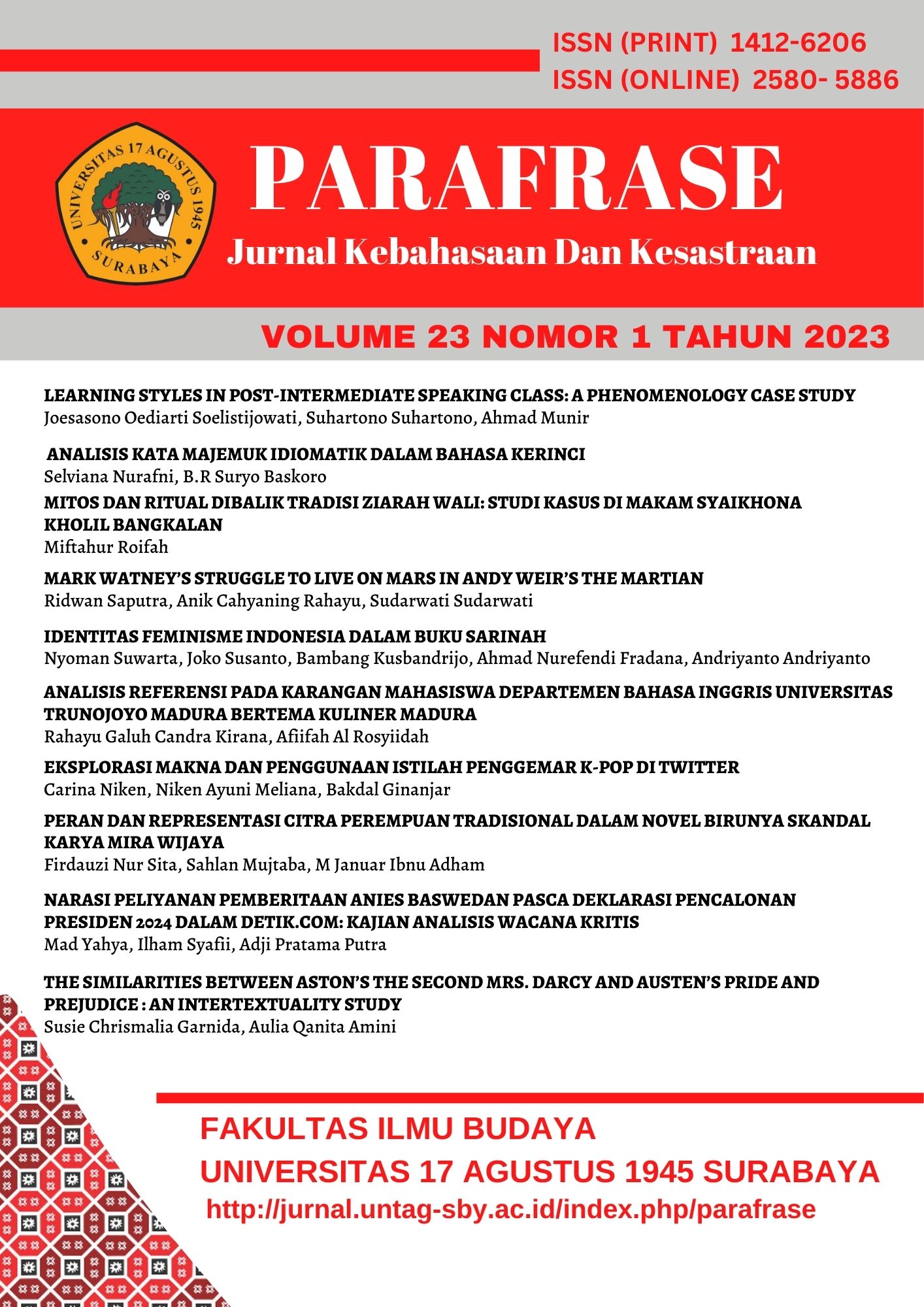IDENTITAS FEMINISME INDONESIA DALAM BUKU SARINAH
DOI:
https://doi.org/10.30996/parafrase.v23i1.8564Keywords:
Identitas Sosial, Feminisme, Buku SarinahAbstract
The social identity of Indonesian feminism is the result of a long process of interaction with universal feminism, but is rooted in the collective culture of the people of the archipelago, which is religious, polite and cultural. The feminist perspective in Sarinah's book is explained in three phases of human evolution, the first phase of women occupying a lower position than men, the second phase women occupy a higher position than men, the third phase women again occupy a lower position than men. The purpose of this study is to analyze the social identity of Indonesian feminism and understand the process of forming social identity of Indonesian feminism according to Sarinah's book. Qualitative methods used through literature review and interpretation of events. Based on the analysis, description and process of social identity formation, Indonesian feminism has four identities. There is a process that influences one's understanding of Indonesian Feminism Social Identity, namely self-classification and social comparison. The two processes work together to explain a particular form of behavior as a woman with a social identity of Indonesian feminism, which is qualitatively different from universal feminism, that identity is socialist religious feminism. That identity is full of love for family, patient and religious, a concept that was initially very social and then became the social identity of Indonesian feminism.
Downloads
Downloads
Published
How to Cite
Issue
Section
License
Authors publishing in the Journal will be asked to sign a Copyright Assignment Form. In signing the form, it is assumed that authors have obtained permission to use any copyrighted or previously published material. All authors must read and agree to the conditions outlined in the form, and must sign the form or agree that the corresponding author can sign on their behalf. Articles cannot be published until a signed form has been received.It is a condition of publication that authors assign copyright or license the publication rights in their articles, including abstracts, to email jurnalparafrase@untag-sby.ac.id. . This enables us to ensure full copyright protection and to disseminate the article, and of course the Journal to the widest possible readership in print and electronic formats as appropriate.



















